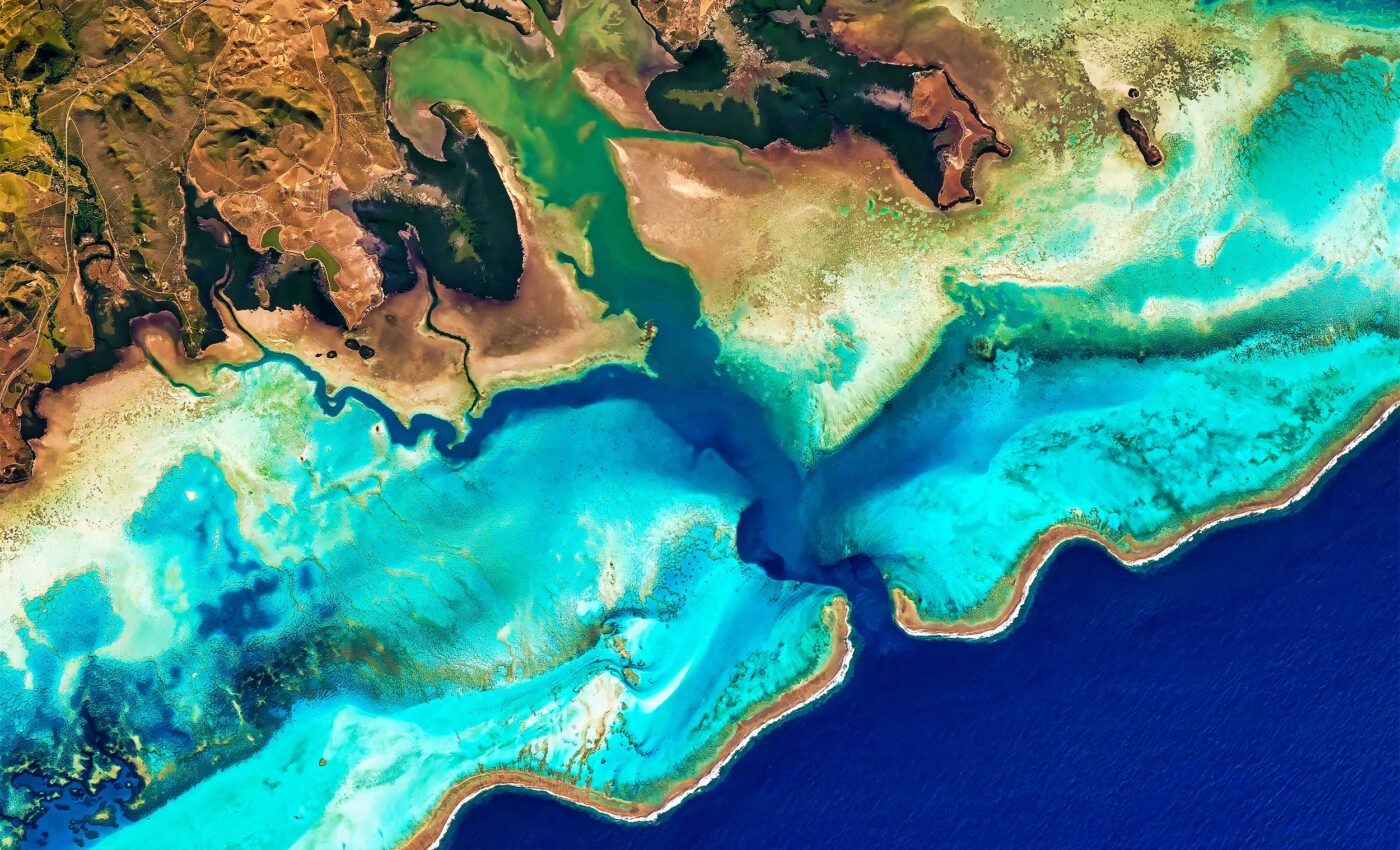
Satellites discover huge expanse of Earth's coral reefs that were previously unknown
Earth’s global expanse of coral reefs is significantly larger than previously known to science. Recent research spearheaded by the University of Queensland made this encouraging discovery using advanced satellite mapping. Their work marks a pivotal step forward in the conservation of these crucial ecosystems.
Dr. Mitchell Lyons, a key figure from UQ’s School of the Environment and a contributor to the Allen Coral Atlas project, shared that scientists have identified approximately 348,000 square kilometers of shallow coral reefs, extending down to depths of 20-30 meters.
“This revises up our previous estimate of shallow reefs in the world’s oceans,” Dr Lyons said. “Importantly, the high-resolution, up-to-date mapping satellite technology also allows us to see what these habitats are made from.”
The true global scale of Earth’s coral reefs
Of particular note is the discovery that 80,000 square kilometers of these reefs boast a hard bottom surface, an environment conducive to coral growth, in stark contrast to areas characterized by sand, rubble, or seagrass.
“This data will allow scientists, conservationists, and policymakers to better understand and manage reef systems,” Dr. Lyons added.
The project utilized over 1.5 million samples and 100 trillion pixels from the Sentinel-2 and Planet Dove CubeSat satellites, creating a high-resolution global map that offers an unprecedented view of the world’s coral reefs.
“This is the first accurate depiction of the distribution and composition of the world’s coral reefs, with clear and consistent terminology,” Dr Lyons said. “It’s more than just a map — it’s a tool for positive change for reefs and coastal and marine environments at large.”
Worldwide effort of science and conservation
Associate Professor Chris Roelfsema, also from UQ, highlighted the collaborative nature of the reef mapping project, which involved over 480 contributors.
The resultant maps and data are publicly available through the Allen Coral Atlas and Google Earth Engine, ensuring widespread access.
“These resources are already being utilized in coral reef conservation efforts across the globe,” Dr. Roelfsema noted, listing countries from Australia to Kenya and regions extending to western Micronesia.
The detailed insights provided by these maps equip scientists, policymakers, and local communities with the information needed to make informed decisions aimed at preserving our coral reefs.
This compelling research highlights the underestimated extent of coral reefs and sets a new standard for how we approach their protection.
With the power of detailed, accessible data, we are now better positioned than ever to safeguard these vital ecosystems for future generations.
Vital role of coral reefs in the global environment
As discussed above, coral reefs, often described as the rainforests of the sea, are among the most valuable ecosystems on our planet.
These underwater marvels play a crucial role in maintaining the health of the global environment, supporting an incredible diversity of marine life, protecting coastlines, and sustaining economies.
Biodiversity hotspots
Coral reefs support an astonishing variety of organisms. They provide habitat, breeding grounds, and nursery areas for an estimated 25% of all marine species, despite covering less than 1% of the ocean floor.
This biodiversity not only makes reefs hotbeds for marine life but also crucial for the genetic diversity that underpins resilience to environmental changes.
Earth’s coastal protection
Coral reefs act as natural barriers, absorbing the energy of waves and storms, and thereby protecting coastal communities, habitats, and shorelines from erosion and flooding.
This buffering capacity is invaluable, especially for low-lying island nations and coastal regions that are increasingly vulnerable to the impacts of climate change, such as rising sea levels and intensified storm events.
Economic value of global coral reefs
The economic contribution of coral reefs is immense, supporting millions of jobs worldwide through fisheries, tourism, and medicine.
Reefs are vital for commercial and subsistence fisheries, providing a source of protein for millions of people.
The allure of their biodiversity also underpins a thriving marine tourism industry, from snorkeling and diving to educational and conservation activities.
Moreover, coral reef organisms are a source of potential pharmaceutical compounds for medicines.
Climate regulation
Coral reefs play a role in the global carbon cycle. Although less recognized than forests for their carbon sequestration capabilities, reefs contribute to the ocean’s role as a carbon sink by capturing carbon dioxide from the atmosphere.
The process of calcification, by which corals build their skeletons, indirectly removes carbon dioxide, helping to mitigate the effects of climate change.
Urgency of conservation
Despite their importance, coral reefs face unprecedented threats from climate change, pollution, overfishing, and destructive fishing practices.
The increasing frequency of coral bleaching events, driven by rising sea temperatures, threatens their survival.
Conserving and restoring coral reefs is not just an environmental imperative but a necessity for human well-being and economic stability.
Global call to action
The conservation of coral reefs requires global cooperation and action. Protecting these ecosystems means reducing greenhouse gas emissions, implementing sustainable fishing practices, managing tourism responsibly, and investing in restoration efforts.
Each action taken to preserve coral reefs contributes to the health of our planet and secures the livelihoods and futures of communities worldwide.
Coral reefs are irreplaceable treasures of the Earth, embodying the interconnectedness of life and the urgency of environmental stewardship. Their conservation is a testament to our commitment to a sustainable and resilient global environment.
The Allen Coral Atlas, a vision brought to life with funding from the late Paul Allen’s Vulcan Inc. and managed by Arizona State University in partnership with Planet, the Coral Reef Alliance, and The University of Queensland, stands as a testament to collaborative innovation in environmental conservation.
The full study was published in the journal Cell Reports Sustainability.
—–
Like what you read? Subscribe to our newsletter for engaging articles, exclusive content, and the latest updates.
—–
Check us out on EarthSnap, a free app brought to you by Eric Ralls and Earth.com.
—–













